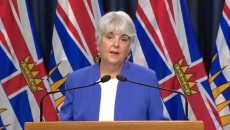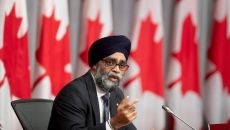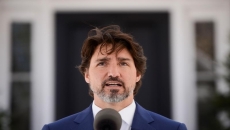Ontario will soon join the rest of Canada by doing away with an educational practice that perpetuates racism throughout the system, the provincial government said Monday as it announced the looming end to streaming in high schools.
The practice, which asks students to choose between pursuing academic or applied courses upon entering the secondary-school system, has drawn criticism at home and abroad for decades. Critics argue streaming disproportionately funnels Black and other racialized students into applied streams, limiting their future prospects and entrenching inequity into the province's education system.
Education Minister Stephen Lecce did not reveal details of the plan to scrap streaming, as well as an accompanying proposal to end school suspensions for students in junior kindergarten to Grade 3, but said the moves are necessary to address long-standing imbalances.
"It is clear there is systemic discrimination built within the education system, whether it be streaming of racialized students, suspensions overwhelmingly targeting Black and Indigenous kids, or the lack of merit-based diversity within our education workforce," he said in a statement. "This government will move quickly and decisively to combat systemic racism so that every child — irrespective of colour of skin, heritage, faith or ability — can have a fighting chance at success."
Premier Doug Ford said scrapping streaming would bring Ontario's education in line with the rest of the country while ending a discriminatory practice.
"We're the only province in the entire country that does this, and it's really not fair to certain groups of students," Ford said at a news conference.
Ford said the practice of streaming was "almost stigmatizing" for students pursuing the applied track of study, which traditionally does not allow participants to graduate with the qualifications necessary to pursue university studies.
Figures provided by the province highlight some of the current disparities plaguing the system.
At the Toronto District School Board, Canada's largest, data showed 47 per cent of Black high school students take applied-level courses compared to about 20 per cent for non-Black pupils.
The government also pointed to lower graduation rates for Black students compared to the rest of their peers.
Madison Milanczak said she experienced what she perceived to be systemic discrimination first-hand. She said teachers and guidance counsellors pressured her to pursue applied courses as she was enrolling in her east Toronto high school, but were overruled by her parents who pushed for the academic stream.
Milanczak, now 18 and a student at Western University in London, Ont., said educators often seemed less willing to reach out to Black students like her or believe them capable of high academic achievement. Abolishing streaming, she said, could help level the playing field for students of colour and those coming from lower-income households.
"I was lucky enough to have access to tutors that my parents were able to provide for me," Milanczak said, noting the costly extra support may not be available to poor students who could otherwise get overlooked during school hours.
Several published academic papers have raised concerns about streaming and its effects on students from a range of marginalized communities.
The United Nations also sounded the alarm in a 2017 report from its Working Group of Experts on People of African Descent. The report addressed what it described as ongoing, institutionalized racism in the education system and its long-lasting consequences.
"Race-based stereotypes about African Canadian students’ scholastic ability have had a devastating impact," the report read, noting Black students were more likely to be directed away from academic streams. "The quality of education received and the outcome of their educational experiences affects the employment and income potential of African Canadians."
Ford pointed to another frequently raised concern about the practice, noting students are being asked to make choices with life-long ramifications too early on their educational paths.
"You're asking a 14-year-old child to make a decision in Grade 9 about their high school career and post-secondary schools that they're going to," he said. "I just don't think it's right. It's a broken system."
The government said streaming in Grade 9 also flouts a recommendation from the Organization for Economic Co-operation and Development, which advises students make such academic decisions later in their high school years.
Even without details in place, praise poured in for the preliminary announcement.
People for Education, a group that advocates for an inclusive public education system in Ontario, said academics and advocates have been calling for an end to streaming for years.
"(The practice) closes doors for thousands of students — more likely to be Black or Indigenous (or who) attend school in lower income neighbourhoods," the group said in a tweet where it went on to describe the government's plan as "good news."
Ontario Green party Leader Mike Schreiner also offered words of approval.
"I support any decision to end discriminatory practices and build anti-racism into the fabric of our school system," he said in a statement. "I am glad the education system is being re-evaluated through an anti-racist perspective so that we do a better job of closing the gaps between students."






